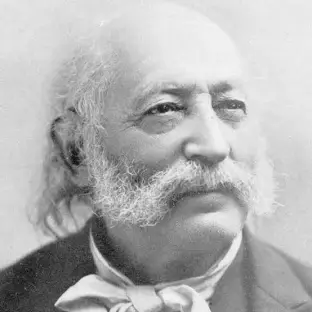 |
| Reform's Hebrew Union College founder, Isaac Mayer Wise |
This is not to say that pursuing social justice is not a Jewish value. But it is clearly not the only Jewish value. It is also not the case that Tikun Olam is defined by a subjective liberal view based on the cultural ethos of time and place. Yet this is the way Tikun Olam is defined in the Reform movement.
This also explains why so many non Orthodox Jews have liberal rather than conservative values. It comes from a good place. Compassion for one’s fellow man. But it is a compassion guided by the subjective ethos of time and place rather than by the ethos of God as recorded in a Bible that is timeless and not subject to temporal whims. If one is a rabbi, it ought to be the bible that guides them, not the cultural values of time and place.
(Compassion based on liberalism is often expressed without knowing or understanding the context in which it is legitimately felt. Which makes it anything but compassion in reality. But I digress)
The fact happens to be that the kind of repair God wants us to pursue for the world is based on what He says it should be. Not what his subjects, humankind, think it should be. As the line in the Alenu prayer said three times a day states. L’Saken Olam B’Malchus Shadai – to the repair the world in God’s Kingdom. Meaning spiritually- in matters that are both Bein Adam L’Makom and Bein Adam L’Chavero.
When subjectivity enters the picture, you get a warped view of what God wants of us, the Jewish people.
The Reform movement was created to help Jews in America navigate their lives when it was extremely difficult if not impossible to be fully observant. Reform did away with all ritual and concentrated on making good people instead of good Jews out of their congregants.
This meant ignoring the very things that made them Jewish. The point of the movement was to equalize Jews with their non Jewish citizens in every possible way so there could be no impediment to their pursuit of success.
Although in recent years there has been a move by Reform to return to ritual observance in the realization that without it, there was little that was Jewish about them, it was nevertheless considered a voluntary cultural practice serving strictly to maintain a Jewish identity. It was never the essential Tikun Olam - their raison d'être.
In a recent article in Tablet, Diana Fersko, a Reform rabbi, made that very point and conceded that this approach has been a mistake. Although still defining Tikun Olam in its liberal humanistic sense, she acknowledged that this was the sum and substance of the movement heretofore. And now, post October 7th, she has come to realize that the hard work Reform has done for Jews to gain full acceptance and equality from their non Jewish peers in America - was not the done deal she thought it was:
(The) betrayals began pretty quickly. We quickly came to realize that some of the good people we elected did not represent us, some of the good institutions we built had built a protest movement against us, and some of the good people we stood with didn’t stand with us.
That - combined with an experience she had as a Reform rabbinical student with a group of teenagers 15 years ago was a moment of truth for her. She described that moment of truth the following way.
Those teens were craving something more than learning how to be good people; they wanted to learn how to be good Jews, literate Jews. They wanted, and they deserved, to be taught much more about mitzvot, about history, about holidays, and about “how to Jew.” What we were teaching wasn’t wrong: lifting up the fallen; remembering the stranger, the orphan, the widow; and bringing justice to the world entire. On the contrary, these are serious and intrinsic Jewish values. But it wasn’t really right, either.
Rabbi Fersko concluded that the reason her flock felt betrayed by the people from whom they believed they earned full respect was because her movement focused on the wrong thing. To put it the way she did:
It’s my fault and all of our faults who shied away from teaching that being a good person was enough. At the end of the day being a good person counts, but so does being a part of the Jewish people—perhaps even more.
She defines the difference between being ‘good people’ and being ‘good Jews’ as the difference between universalism and particularism. Her antidote to the problem is to focus more on the particularism that defines us as good Jews rather than the universalism that makes us good people. This means defining Judaism as more than just ‘Tikun Olam’. It requires considering all of the Mitzvos as definitive of Judaism
This is surely a step in the right direction. I’m not sure that her ‘epiphany’ is shared by her Reform colleagues. But if it is, the there is yet hope that something good will come of it.